I want people to be able to get accurate and responsible answers to the questions that they have about mental health, mental illness, and psychology in general. I do not plan on answering questions based solely on opinion but on what science and experience has demonstrated. This does not mean that opinion does not play a role and that is where you come in.
Please send me your questions and I will attempt to answer them, possibly featuring them on this page. In addition, I not only welcome feedback and discussion, I’m practically begging for it. Let your voice be heard. Having said that, please be respectful of the voices of others. Abusive, offensive, or aggressive posts will not be allowed.
Question of the Day:

Q: How can people direct anger constructively?
I love this question. As someone who specializes in the treatment of anger and aggression, one of the philosophical ideas that is ubiquitous and, I believe, harmful, is the notion of “positive” anger. I think I know what people area referring to when they use this term but I think a deeper exploration of the idea of anger will reveal why I don’t believe this concept is possible.
When people referring to positive anger, for the most part, they are referring to the ability to channel one’s dissatisfaction with a situation into positive change using proper channels. Or in the case of physical aggression, it might be the ability to use aggressive behavior to escape a dangerous situation or protect oneself. A common use of this concept is within the sporting arena, where teams or rivals artificially raise their level of aggression in anticipation of a contest, believing that that aggression will fuel them on to victory and give them the motivation to persevere in the face of adversity.

Ping Pong? It’s called TABLE TENNIS!!!
These seem like very obvious examples of positive anger but in fact, they are not.
I think that the real root of what we call anger is hate. As far as I have experienced, I’m not sure that hate is possible to channel in a positive way. One of the key things to recognize is that the physical sensation of anger is virtually identical to the physical sensation of excitement, anticipation, and fear. The different labels that we apply to this physical sensation are rooted in a lifetime of experiences. Instead of trying to channel our “anger” in a positive way, we are probably better off to understand that sensation for what it actually is.
For example, in the case of a parent trying to encourage a child to do a chore or go to bed or please, for the love of all that is good and decent, can you please just eat the peas!!… that parent is better served to realize that the sensation that they are experiencing is in fact, not anger but something else. If we look at it logically, do we hate the child for their reluctance to follow direction? Hopefully not. So if it is not hate, what is it? What is it about the situation that is leading to this physical sensation? In almost every case, the catalyst to the reaction is the sensation of powerlessness.

A spoonful of sugar helps pretty much anything go down. These are my mom’s actual words.
So why does powerlessness set off the chain reaction that we experience as anger? The root is in our personal developmental history as well as the developmental history of our species. The central processing unit inside our skulls, also known as our brain, has a simple objective: survival. To that end, the predictability of one’s environment is inextricably linked to our ability to protect ourselves. To the degree that our environment is unpredictable, we are vulnerable to danger and harm. Thus, we are wired, and have been for a long time, to seek predictability through controlling our environment.
If we are raised in a secure, loving attachment relationship, our higher brain processes are able to develop beyond this level of survival-centred existence. The brain gets to know that we are safe, even if our environment is not completely predictable. However, if our brain does not learn that lesson, if powerlessness is paired with dangerous or harmful circumstances throughout our development, then the survival brain is much more reluctant to relinquish the steering wheel to the higher brain. This means that whenever we experience feelings of powerlessness, our brain believes that our very survival is on the line. In response to this perceived threat, the brain initiates the fight or flight response, which we experience as anger or frustration.
This is a very brief review of the subject and perhaps it doesn’t address the actual question of how to channel this feeling into something positive but I believe, and experience has demonstrated that if we are able to more accurately determine what it is that we’re feeling, we are more able to intuitively know what to do with that emotion.
Once again, I welcome your comments and questions. Please share this with whomever you think would benefit.
Past Q&A

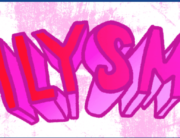


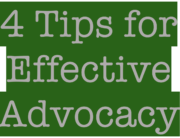

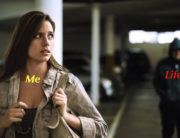
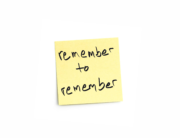
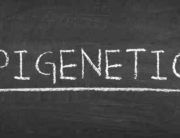




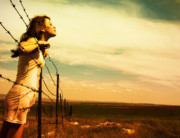
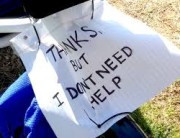
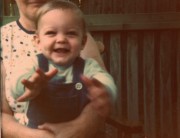
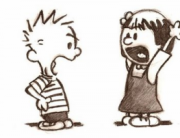





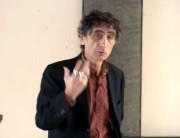





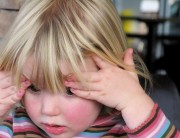

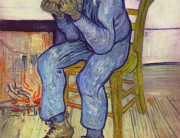






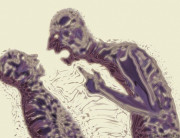



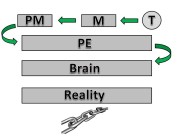

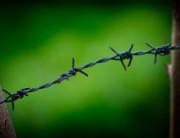



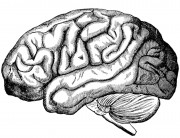
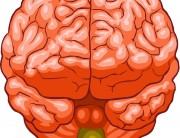
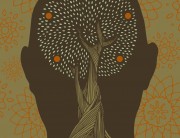

Recent Comments